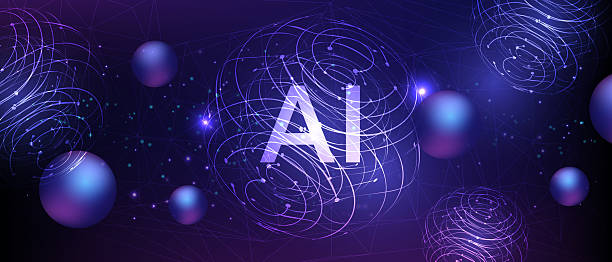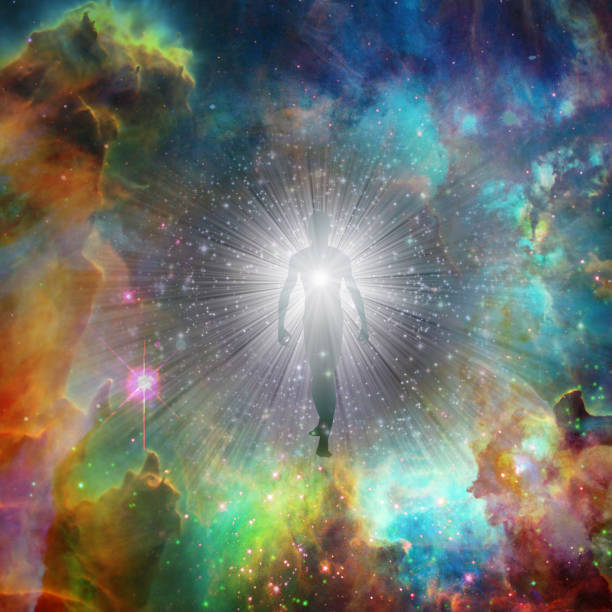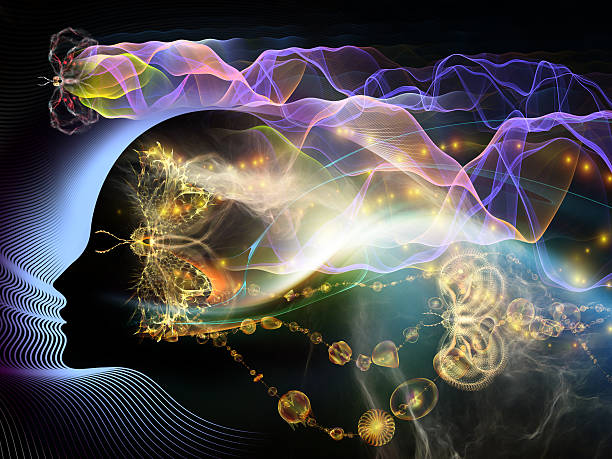A quiet revolution is unfolding across the world. It’s not one driven by machines roaring in factories or armies marching through streets, but by lines of code—intelligent, adaptive, and self-learning. Artificial Intelligence (AI) is reshaping how we think, work, and live, transforming industries in ways that once belonged only in science fiction.
The future of work is being rewritten by algorithms that learn faster than humans, by robots that never tire, and by digital systems that see patterns invisible to the human eye. But contrary to fear-filled headlines, AI is not here to replace us—it is here to redefine us. It challenges us to evolve, to embrace creativity, empathy, and critical thinking in new dimensions.
Let’s explore ten profound ways AI will transform the future of work—forever changing how we create, connect, and contribute to the world.
1. Automation Will Redefine Jobs, Not Eliminate Them
One of the biggest myths about AI is that it will destroy human employment. The truth is more complex—and more hopeful. AI-driven automation will certainly replace certain tasks, especially repetitive and manual ones, but it will also create entirely new kinds of jobs that require human oversight, innovation, and emotional intelligence.
Think about the industrial revolution—it replaced manual labor with machines, but it also gave rise to engineers, designers, and managers. AI is doing something similar today. In manufacturing, for instance, robots now handle dangerous and monotonous work, allowing humans to focus on creativity, quality control, and system design.
A study by the World Economic Forum predicts that while AI may displace 85 million jobs, it will create 97 million new roles by 2025—jobs that involve human strengths like creativity, problem-solving, and emotional understanding.
The jobs of tomorrow won’t disappear; they’ll evolve. Instead of data entry clerks, we’ll have data curators. Instead of factory workers, we’ll have robot trainers. Automation will be our partner, not our replacement.
2. AI Will Transform Decision-Making with Predictive Intelligence
In the world of business and governance, decisions have always been made with partial information. Humans are brilliant, but our perception is limited. AI changes that.
With machine learning and predictive analytics, organizations can now process millions of data points to foresee trends, identify risks, and make more informed decisions. From predicting stock market fluctuations to anticipating consumer behavior, AI offers clarity in the chaos.
In healthcare, AI systems analyze patient histories, genetics, and even lifestyle factors to predict diseases before symptoms appear. In logistics, algorithms forecast supply chain disruptions and optimize delivery routes in real time.
But AI doesn’t just analyze data—it learns from it. Every decision it helps make becomes part of a feedback loop that enhances future accuracy. Imagine a world where leaders can foresee market shifts, doctors can prevent illness, and governments can anticipate crises. That world is arriving faster than we think.
Yet the human role remains vital. AI can show possibilities, but only humans can decide what is ethical, meaningful, and aligned with our shared values.
3. Personalization Will Become the Heart of Every Career
We are entering an era of hyper-personalization at work—where AI tailors not just the products we use, but the jobs we do.
AI-driven analytics can map individual strengths, learning styles, and performance patterns to help employees grow faster and smarter. Imagine a digital mentor that knows when you’re most productive, which skills you should develop next, and what projects will bring out your best work.
In education and professional training, AI-powered platforms already offer adaptive learning experiences. A student struggling with mathematics can receive personalized lessons designed by an AI tutor that understands their learning curve. Similarly, professionals in any field will have access to continuous, tailored upskilling based on their goals and emerging market demands.
For employers, personalization means higher engagement and productivity. For workers, it means a career path that truly fits who they are—a future where no two careers are identical, because no two people are.
4. Remote Work Will Evolve into AI-Enhanced Collaboration
The COVID-19 pandemic accelerated remote work by decades, and AI is taking it further. The office of the future isn’t a physical place—it’s an intelligent digital ecosystem.
AI-driven platforms now manage scheduling, optimize video meetings, translate languages in real time, and even detect emotional cues through voice and facial analysis. Virtual assistants like ChatGPT, Microsoft Copilot, and Google’s Gemini are becoming digital coworkers—handling emails, summarizing meetings, and automating project updates.
Imagine joining a meeting where an AI assistant automatically summarizes key points, tracks action items, and ensures every voice is heard, regardless of language. AI can make global collaboration seamless and deeply human.
In this hybrid world, boundaries between time zones and cultures fade. Work becomes fluid—something we carry with us, powered by digital intelligence that anticipates our needs and enhances our abilities.
The future workplace won’t be about location—it will be about connection.
5. Creativity and Innovation Will Skyrocket with AI Co-Creation
There was a time when creativity was thought to be uniquely human. Today, AI is not replacing creativity—it’s multiplying it.
Artists, designers, musicians, and writers are already using AI tools to amplify imagination. Filmmakers use AI to design virtual sets. Architects use generative algorithms to create structures inspired by nature. Scientists employ machine learning to discover new materials and medicines at lightning speed.
AI can generate thousands of ideas in seconds, analyze audience preferences, and help creators refine their vision. The future of creative work will be defined by collaboration between human intuition and machine precision.
In journalism, AI can analyze massive data sets to uncover hidden stories. In fashion, it predicts trends months before they reach the runway. In entertainment, AI composers create symphonies while human musicians bring them to life.
The most powerful ideas will emerge not from humans or machines alone, but from their partnership—a new form of co-creation that fuses logic and imagination into something extraordinary.
6. The Nature of Leadership Will Change
In the age of AI, leadership will no longer be about commanding people—it will be about guiding intelligence, both human and artificial.
AI will assist leaders by providing real-time insights, emotional analytics, and data-driven forecasts. Imagine a manager who knows exactly when their team is feeling overwhelmed, or when a project needs more creative energy. Emotional AI systems are already capable of analyzing voice tone and expression to measure team morale.
But the true leaders of tomorrow will not rely solely on data—they will balance it with empathy. They’ll use AI not to control, but to empower. The ability to interpret AI insights through the lens of human experience will define exceptional leadership.
Moreover, leadership hierarchies will flatten. AI will decentralize power by giving individuals access to information that was once reserved for executives. Decision-making will become more transparent, more collaborative, and more ethical—if guided wisely.
The leaders of the AI era won’t just manage people; they’ll nurture potential, human and machine alike.
7. Skill Evolution and Lifelong Learning Will Become Essential
In the age of AI, the most valuable skill will be the ability to learn continuously.
As AI systems evolve, so too must human talent. Routine skills will become automated, but adaptive skills—creativity, critical thinking, emotional intelligence, and digital literacy—will become indispensable.
The workforce will need to reskill at unprecedented speed. AI-powered learning platforms are already transforming education, using adaptive algorithms to personalize lessons for every learner. These systems analyze performance and adjust the content in real time, ensuring that learning becomes as natural as breathing.
Governments and companies are also realizing the importance of lifelong education. Some are introducing “AI literacy” as a basic skill, alongside reading and mathematics. Others are creating programs to teach workers how to collaborate with AI rather than compete against it.
The idea of finishing school and working one job for life is obsolete. In the AI era, we will all become perpetual students—guided by machines, inspired by curiosity, and strengthened by adaptability.
8. Ethical Challenges Will Redefine Responsibility
With great power comes great responsibility—and AI’s power is immense. As it takes on greater roles in our work and society, we must confront critical ethical questions.
Who is accountable when an algorithm makes a biased decision? How do we ensure AI respects privacy, fairness, and transparency? How do we balance innovation with human dignity?
AI systems are only as fair as the data they’re trained on. When that data reflects human bias, the results can be discriminatory—impacting hiring, law enforcement, healthcare, and beyond. This is why ethical frameworks, transparency standards, and diverse data representation are essential for a just AI future.
Companies are beginning to appoint “AI ethicists” and “algorithm auditors,” roles that blend technical expertise with moral philosophy. Governments are introducing regulations to ensure that AI decisions remain explainable and accountable.
The workplaces of the future will not just need coders—they’ll need ethical guardians. The true test of AI won’t be its intelligence, but its integrity.
9. The Rise of Human-AI Collaboration
The future of work isn’t humans versus machines—it’s humans with machines.
AI is already augmenting human performance in nearly every industry. In medicine, doctors use AI to analyze scans faster and more accurately than ever before. In agriculture, farmers use AI drones to monitor crops and predict yields. In law, AI assistants sift through thousands of legal documents in seconds, freeing lawyers to focus on strategy and argument.
This partnership enhances human potential. AI handles the heavy lifting—data analysis, routine workflows, repetitive tasks—while humans bring empathy, judgment, and creativity.
Some companies are even developing “cobots,” or collaborative robots, that work side by side with people. These cobots don’t replace workers—they protect them from hazardous environments and repetitive strain.
In the next decade, every professional will likely have an AI companion—a personalized assistant that learns your habits, predicts your needs, and amplifies your abilities. The question will not be whether AI takes your job, but how well you and your AI partner can work together.
10. Work-Life Balance Will Be Redefined by Intelligent Systems
AI doesn’t just change how we work—it changes why we work.
In a world where machines handle much of the tedious labor, humans can reclaim time for creativity, learning, and relationships. AI-driven productivity tools already help people manage time, reduce burnout, and maintain focus.
Imagine an AI system that detects stress in your voice during a meeting and automatically adjusts your schedule to include a short break. Or a virtual assistant that knows when you’re most creative and structures your day around those natural rhythms.
The goal is not endless efficiency—it’s balance. AI could help humanity achieve what industrialization once took away: the freedom to live meaningfully.
In this sense, AI may not just transform the economy—it may transform the human condition. It gives us a chance to reimagine work not as survival, but as purpose.
A New Era of Human Potential
The story of AI is not the story of machines—it’s the story of us. Every leap in automation, every algorithm, every digital revolution is ultimately a reflection of human ambition.
Artificial Intelligence is not replacing humanity; it is amplifying it. It is urging us to evolve beyond repetition and embrace creativity, compassion, and lifelong learning. It is reminding us that intelligence, no matter how artificial, is still a tool—and tools gain meaning only in the hands of those who wield them with wisdom.
The future of work will not belong to the strongest or even the smartest—it will belong to the most adaptable. To those who see AI not as competition, but as collaboration. To those who believe that technology, guided by empathy, can make work more human than ever before.
As we step into this new era, one truth becomes clear: the machines may be learning fast—but humanity still writes the story.






